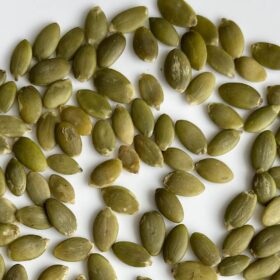If you’d like to boost your magnesium intake while sticking to a plant-based diet, this overview of magnesium sources for vegans has got you covered.
Magnesium is an element that’s crucial for various bodily functions. It plays a key role in enzyme activity, energy production, and the synthesis of nucleic acids and proteins.
Luckily, there are so many delicious plant-based foods that are loaded with magnesium. So if you’d like to boost your intake of this essential element, here’s a list of the top sources:
1. Pumpkin Seeds
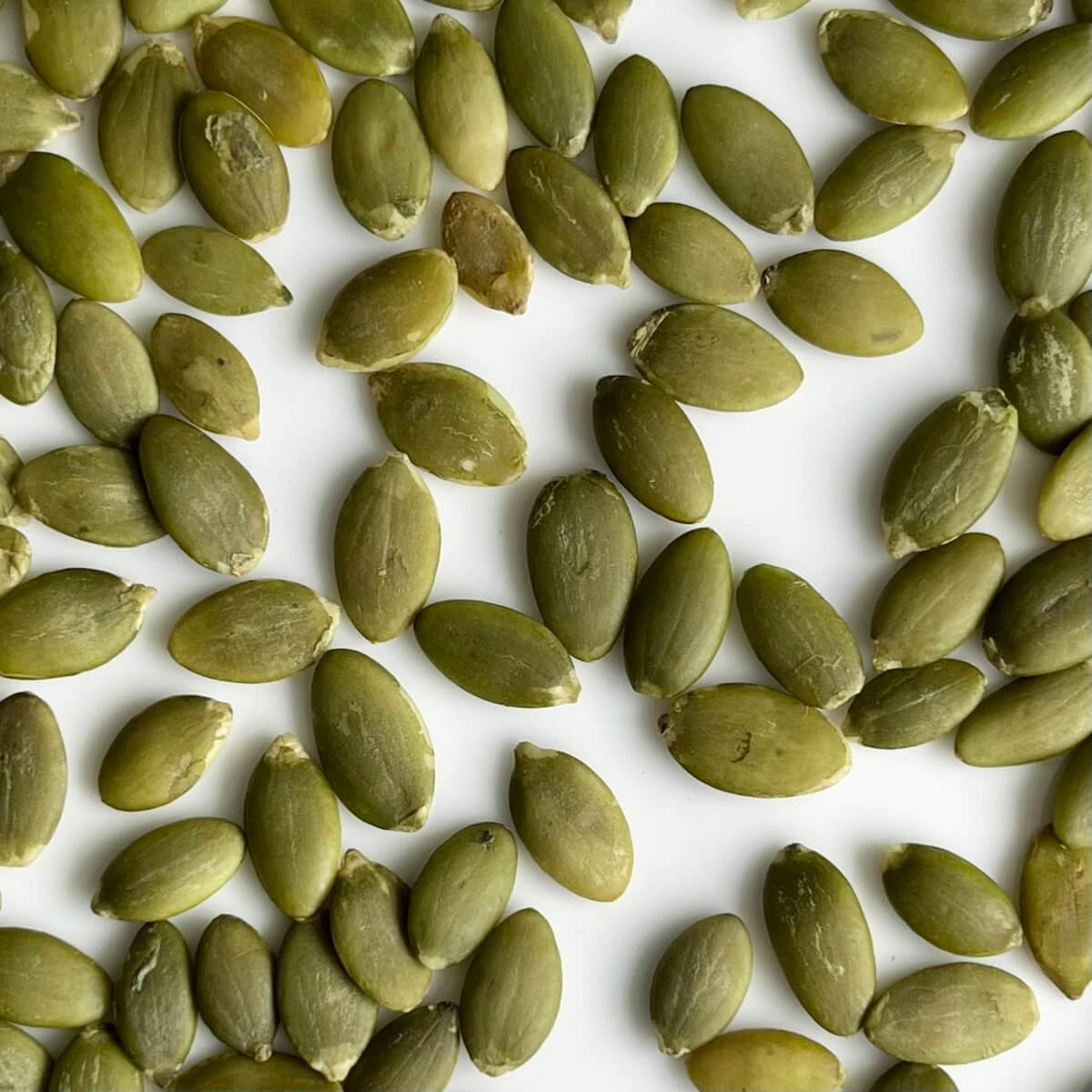
Pumpkin seeds are an excellent option for vegans looking for magnesium sources. These small, nutrient-dense seeds contribute to the recommended daily intake of this essential mineral.
In addition to magnesium, pumpkin seeds offer other nutritional benefits, including being a good source of plant-based protein, nutritious fats, and fiber. Try sprinkling some pumpkin seeds on salads or soups. Or enjoy them on their own as a snack.
Pumpkin Seeds Magnesium Content
According to the USDA National Nutrient Database, pumpkin seeds contain 500 mg of magnesium per 100g.
2. Spinach
Spinach is another good source of magnesium. This nutrient-rich vegetable also offers a plethora of vitamins and antioxidants. Add spinach to salads, smoothies, or serve it steamed or sautéed as a side dish. It’s a delicious way for vegans to meet their magnesium requirements.
Spinach Magnesium Content
According to the USDA National Nutrient Database, spinach contains 93 mg of magnesium per 100g.
3. Chia Seeds
Chia seeds are an excellent vegan source of magnesium. These tiny seeds are rich in magnesium and also contain high levels of omega-3 fatty acids, fiber, and antioxidants.
Vegans can easily incorporate chia seeds into their meals by sprinkling them on cereals, coconut yogurt, or blending them into smoothies.
Chia Seeds Magnesium Content
According to the USDA National Nutrient Database, chia seeds contain 335 mg of magnesium per 100g.
4. Almonds
Almonds are a convenient and portable magnesium-rich snack. You can enjoy them on their own, add them to salads, or blend them into almond butter. These nutritious nuts are a great way for vegans to meet their magnesium requirements.
Almonds Magnesium Content
According to the USDA National Nutrient Database, raw whole almonds contain 258mg of magnesium per 100 g.
5. Cashews
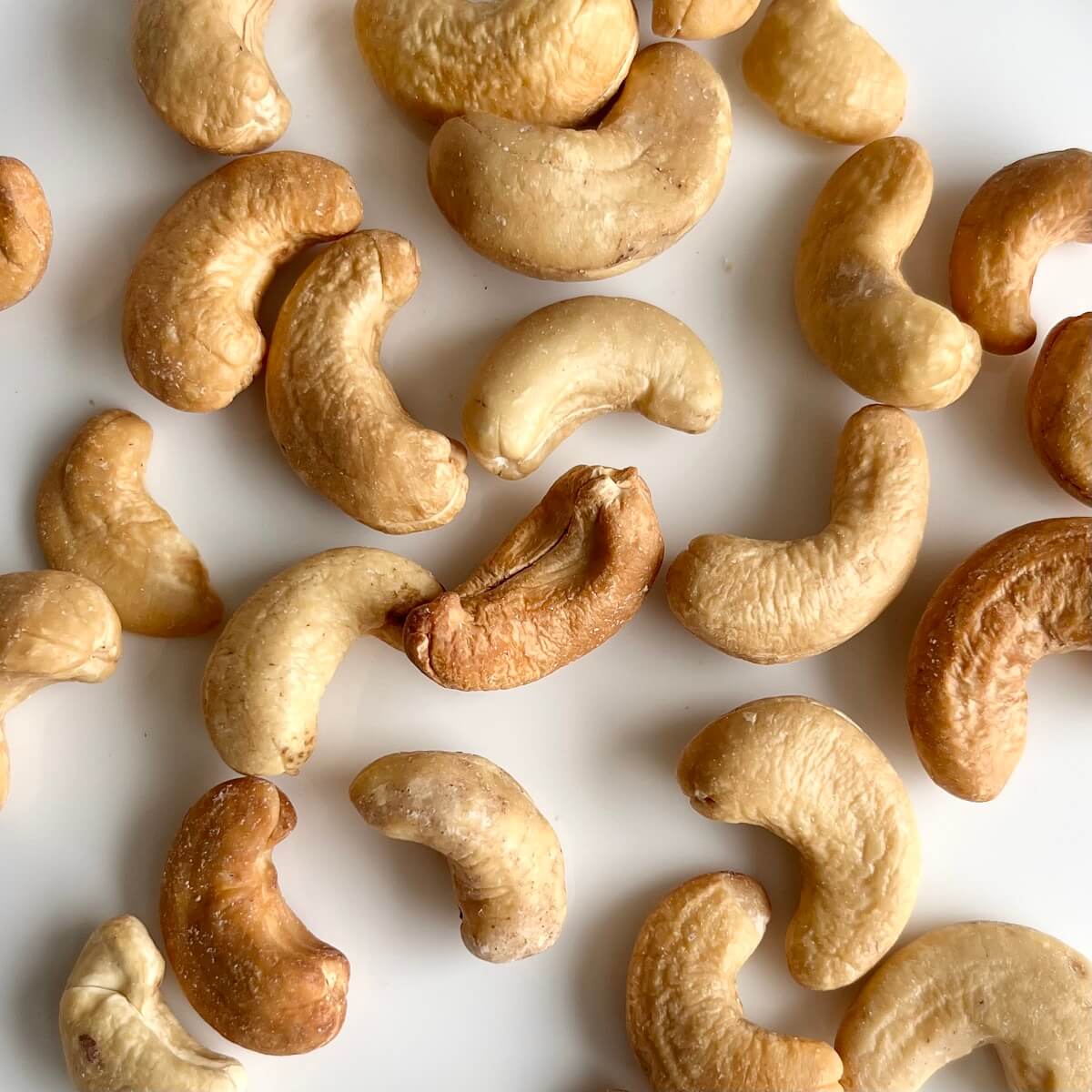
Cashews are another good option. Have a handful as a snack, add them to stir-fries, or blend them into cashew butter. They’re also delicious in creamy vegan sauces or desserts like vegan cheesecake or chocolate mousse.
Cashews Magnesium Content
According to the USDA National Nutrient Database, raw cashews contain 251 mg of magnesium per 100g.
6. Quinoa
Quinoa is a nutritious pseudo-cereal that provides a good amount of magnesium plus fiber and various vitamins and minerals. It’s also a complete source of plant-based protein. Use it as a base for salads or serve it as a simple, magnesium-rich side dish.
Quinoa Magnesium Content
According to the USDA National Nutrient Database, cooked quinoa contains 64 mg of magnesium per 100g.
7. Dark Chocolate (with high cocoa content)

Dark chocolate is one of my favorite magnesium sources for vegans. Including moderate amounts of high-cocoa dark chocolate in a vegan diet is a delicious and nutrient-dense way to meet your magnesium requirements.
Dark Chocolate Magnesium Content
According to the USDA National Nutrient Database, dark chocolate with 70-85% cocoa solids contains 228 mg of magnesium per 100g.
8. Black Beans
Black beans, are another excellent vegan option. Add them to soups, salads, or tacos. They’re a filling and delicious way for vegans to boost their magnesium intake.
Black Beans Magnesium Content
According to the USDA National Nutrient Database, dry black beans contain 180 mg of magnesium per 100g.
9. Edamame
Edamame (green soybeans harvested before they ripen) are a nutritious magnesium-rich food. I like to enjoy them as a snack or add them to salads or plant-based stir fries.
Edamame Magnesium Content
According to the USDA National Nutrient Database, cooked edamame contains 64 mg of magnesium per 100g.
10. Tofu
Tofu, a protein-rich staple in plant-based diets, is another one of my favorite vegan sources of magnesium. This nutrient-dense food adds a good amount of magnesium to a vegan diet and also contributes essential amino acids, iron, and calcium.
Tofu Magnesium Content
According to the USDA National Nutrient Database, firm tofu contains 58 mg of magnesium per 100g.
11. Hemp Seeds
Hemp seeds are a great vegan magnesium source. Adding hemp seeds to salads, smoothies, or cereal is an easy way for vegans to boost their magnesium intake.
Hemp Seeds Magnesium Content
According to the USDA National Nutrient Database, hulled hemp seeds contain 700 mg of magnesium per 100g.
12. Sunflower Seeds
Sunflower seeds are another good magnesium source. Have them as a crunchy snack, add them to salads, or incorporate them into baked goods like muffins or breads. They’re a convenient and delicious way for vegans to boost their magnesium intake.
Sunflower Seeds Magnesium Content
According to the USDA National Nutrient Database, raw sunflower seeds contain 302 mg of magnesium per 100g.
13. Brown Rice
Brown rice is another nutritious vegan magnesium source. It’s also an excellent source of fiber, essential nutrients, and complex carbohydrates. Serve it as a side dish or add it to soups, stews, or stuffed peppers.
Brown Rice Magnesium Content
According to the USDA National Nutrient Database, cooked brown rice contains 39 mg of magnesium per 100g.
14. Oats
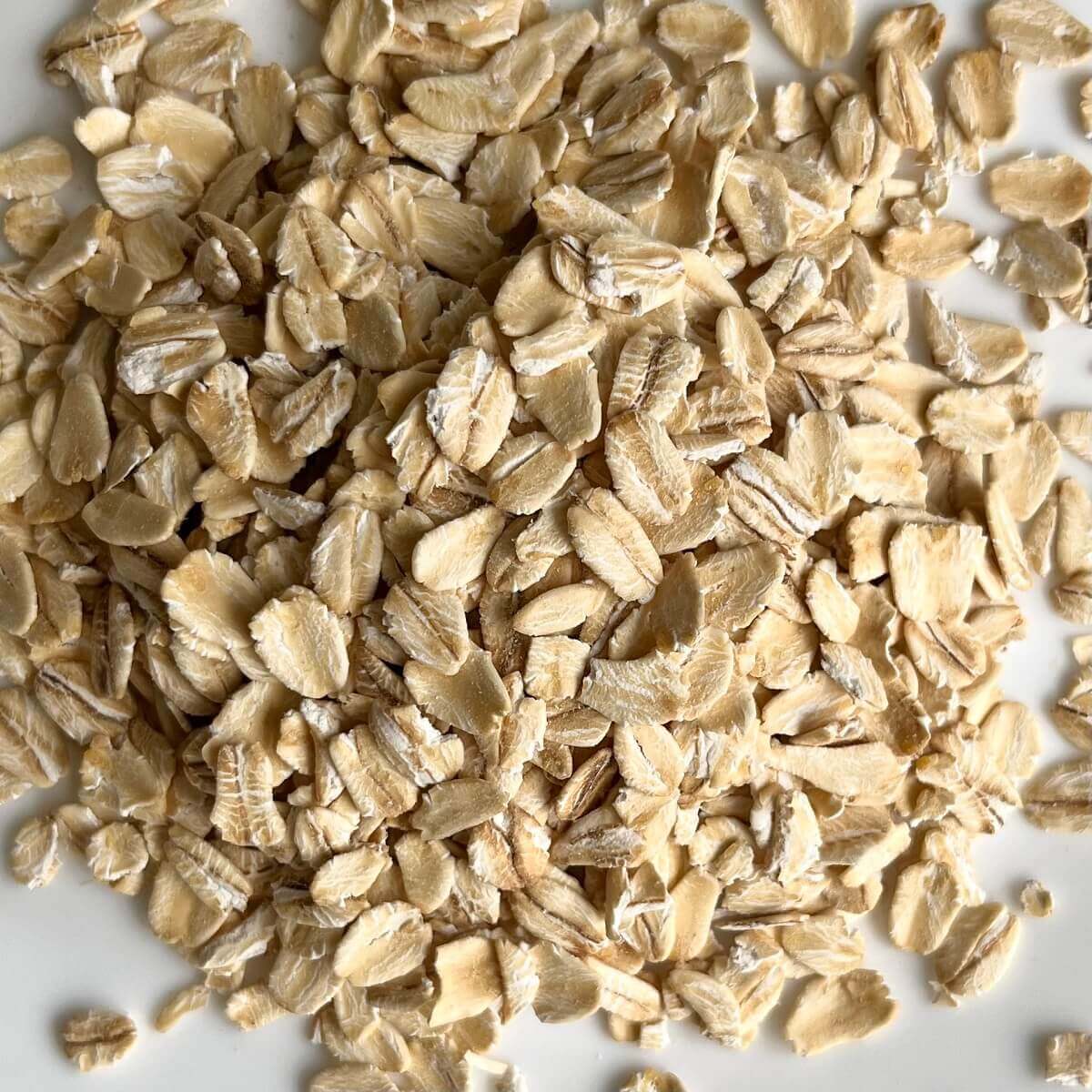
Oats are a nutrient-dense and hearty vegan source of magnesium. They also offer other nutritional benefits including soluble fiber, which supports digestion and helps regulate cholesterol levels. Oats can be used in a wide variety of plant-based dishes such as oatmeal, smoothies, and energy bars.
Oats Magnesium Content
According to the USDA National Nutrient Database, rolled oats contain 126 mg of magnesium per 100g.
15. Pine Nuts
I love the delicate flavor and buttery texture of pine nuts. In addition to magnesium, pine nuts provide monounsaturated fats, protein, and many essential vitamins and minerals. Try toasting them and sprinkling them over salads or blending them into pesto.
Pine Nuts Magnesium Content
According to the USDA National Nutrient Database, raw pine nuts contain 206 mg of magnesium per 100g.
Vegan Magnesium-Rich Recipes
If you’re looking for some magnesium-packed, plant-based recipes to try, here’s a few yummy ones to get you started:
1. Dark Chocolate Covered Pumpkin Seeds

These delicious dark chocolate covered pumpkin seed clusters are a magnesium-rich treat. Dark Chocolate Covered Pumpkin Seeds Recipe
2. Vegan Oat Flour Pancakes
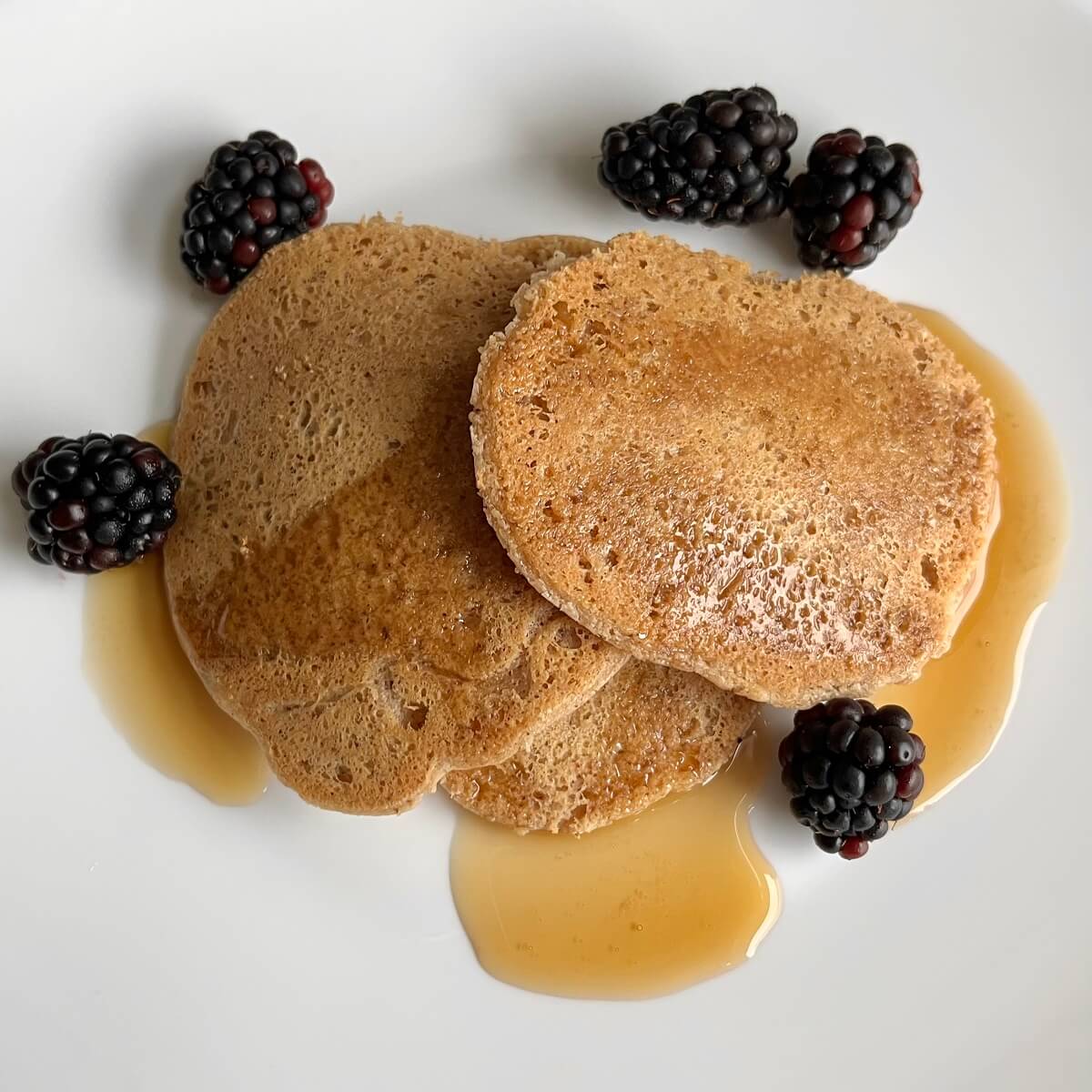
These delicious plant-based oat pancakes are perfect for a hearty, magnesium-rich breakfast. Vegan Oat Flour Pancakes Recipe
3. Vegan Spinach Artichoke Dip
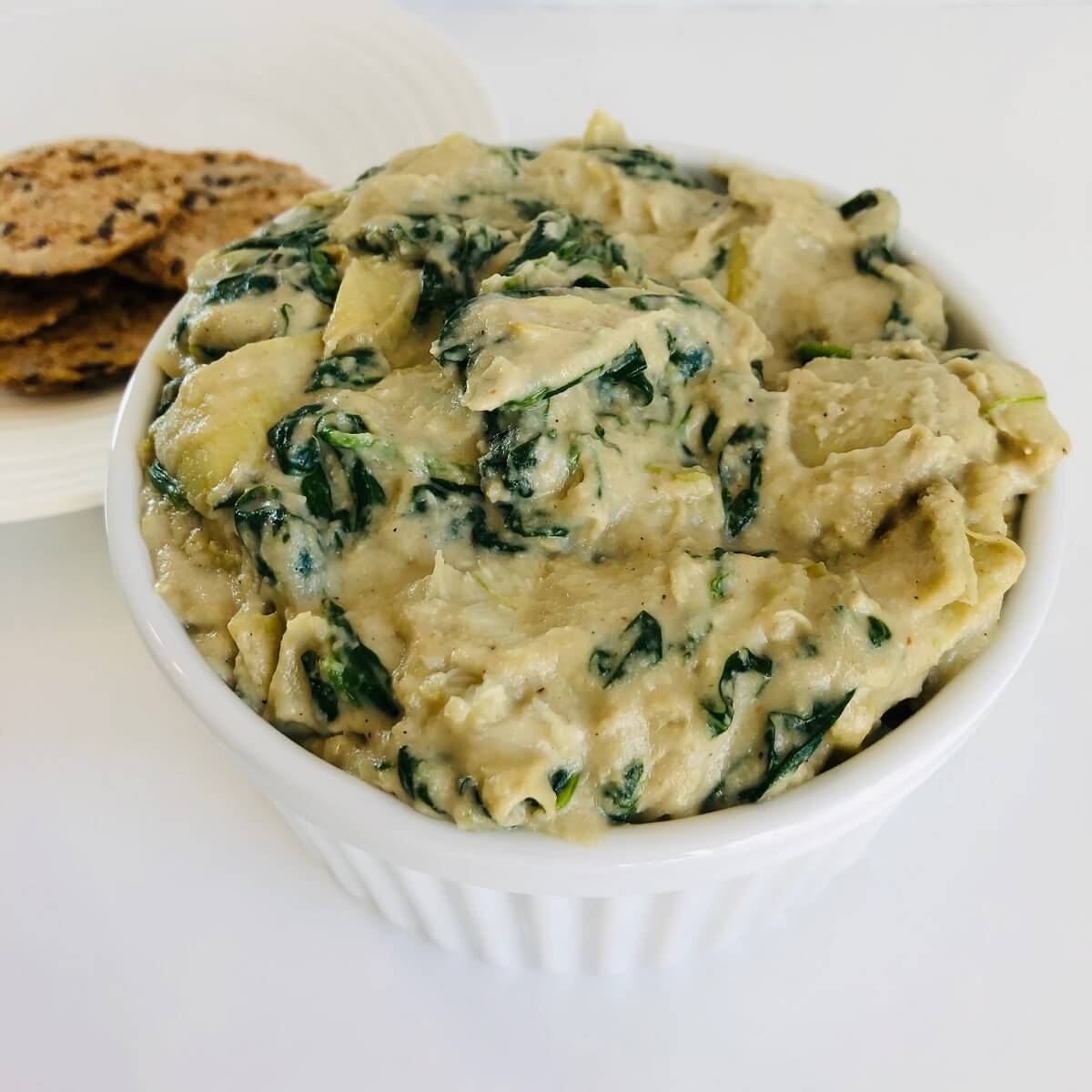
This luscious dip is loaded with flavor. It’s perfect for entertaining. Vegan Spinach Artichoke Dip Recipe
You Might Also Like
- This list of vegan foods rich in iron is helpful if you’d like to boost your iron intake while sticking to a plant-based diet.
- This blog post about vegan sources of lysine has got you covered if you’d like to increase your intake of this essential amino acid.
- This post explaining the differences between Deglet Noor vs Medjool dates is helpful if you’re not sure which kind to choose.
